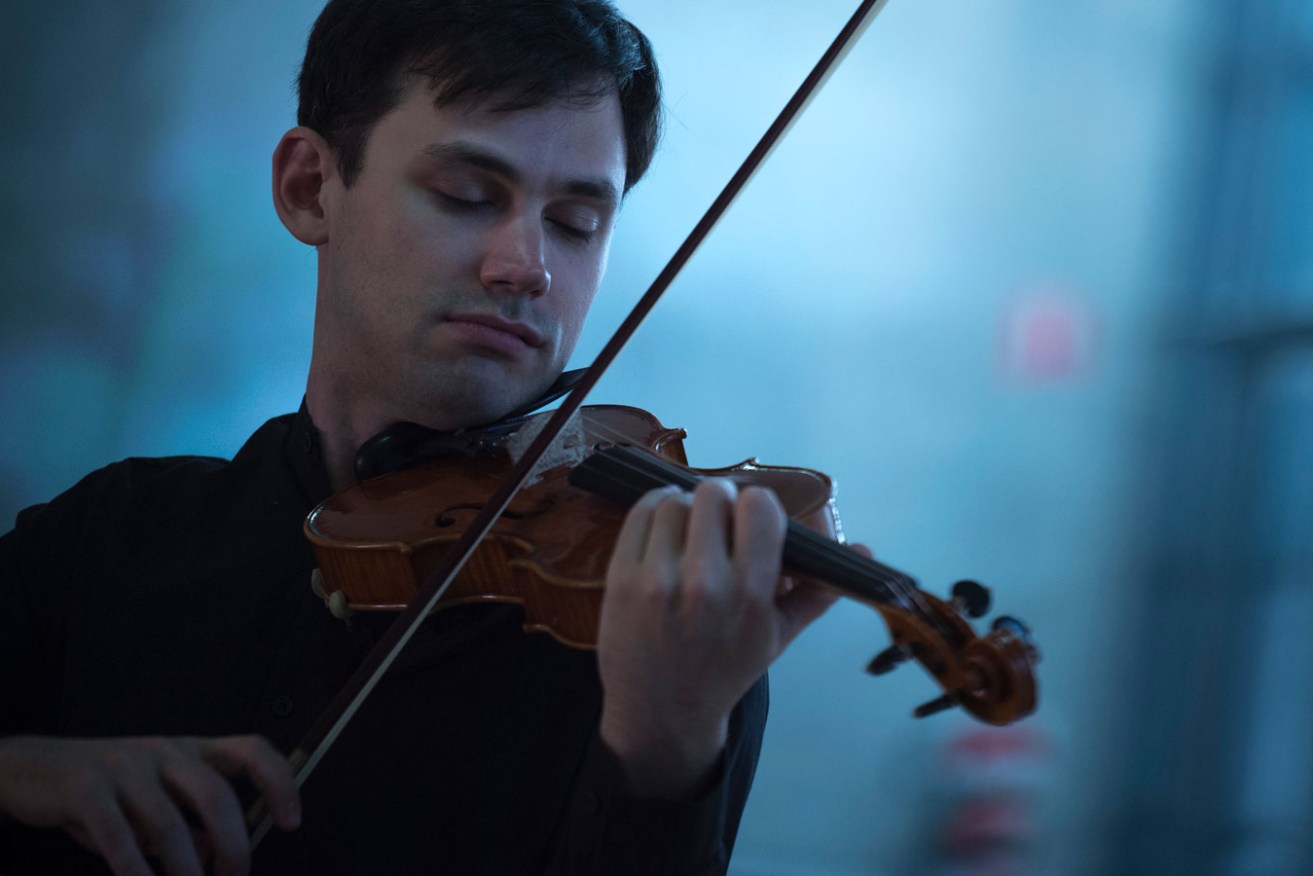Music review: Kristian Winther and Aura Go
Kristian Winther offered one of the more challenging programs a violinist could ever take on, but his artistry seemingly knew no limit in a remarkable UKARIA concert with pianist Aura Go.


Kristian Winther is a musician of faultless technique and rare guts. Photo: supplied
Nine years ago, Scott Hicks’ film Highly Strung chronicled all too painfully the most turbulent time that the Australian String Quartet has ever been through, the result of which led to its first violinist Kristian Winther quitting the group amid acrimony. As the credits rolled at the end, we learned that he wound up working night shifts in a hotdog parlour.
Those dark times are thankfully well passed, and Winther is back doing what he does so well: playing at the highest level and following his own instincts.
Some concertgoers will have seen him in the recently-formed Alma Moodie Quartet when that group has visited Adelaide – most recently in September at North Adelaide Baroque Hall, where they performed with tremendous vigour.

Pianist Aura Go. Photo: Keith Saunders / supplied
But Winther the soloist is a yet more fascinating encounter. His resolute air and pungently animated playing in the first piece, Oliver Knussen’s Reflection for Violin and Piano, immediately showed one thing: when the stars align, as they most surely did in this concert at UKARIA, this musician is ferociously overloaded in ability.
Pouncing on this piece’s thorny virtuosity, the drama was explosive and Winther’s reflexes lightning-quick. With Melbourne pianist Aura Go accompanying him, this concert was off to an incendiary start.
The other thing that one came to see about Winther is how he imparts a full artistic sense to even the most dissonant modern music. If Knussen’s Reflection was not enough to scare away the birds at UKARIA, Schoenberg’s Phantasy for Violin and Piano, Op. 47, certainly was. Yet for all its savagery, Winther’s way of bringing its seemingly randomised notes into focus, of creating a coherent line where apparently none exists, made it thoroughly satisfying – and even entertaining, albeit in a ghoulish sort of manner.
It was like gazing into the mathematical perfection of a Mandelbrot set, but with a wry sense of humour as well. These days, it is a daring thing in the extreme to play any piece of Schoenberg, especially a complex dodecaphonic work such as this (it was, in fact, his last instrumental composition).
It may just be because, as the composer himself once remarked, “My music is not modern, it is only badly played”. And when played with the level of conviction and high precision that Winther and Go bring to their music-making, all of Schoenberg’s supposed badness begins to disappear as if by magic.
No one is going to go away whistling his melodies, but this performance landed on a sweet spot and won resounding applause – no small achievement.
This concert demonstrated very clearly that Winther does not shy away an inch from tougher assignments. Max Reger is another composer whose music is largely bypassed these days for its hardness on the ear, but Winther’s instinctive musicianship again made complete sense of his Petite Caprice and Romance in G. Never sitting long on an idea, he moved forward keenly, drawing everything together in a single artistic sweep.
Even so, three genuinely lovely Romances by Clara Schumann, her Op. 22, came as a welcome addition to what rapidly turned into a gritty program. Allowing himself to dwell on their song-like phrases, Winther played these pieces from the heart. The Winther and Go partnership shone particularly here. Their feeling was exquisite.
With Beethoven and Brahms, it felt we would be back on more familiar ground – except that Winther, true to his instincts, chose works that are off the beaten track. Not so joyous as his “Spring” Sonata, Beethoven’s Violin Sonata No. 4 in A minor, Op. 23, is a restless, bristling experience. Winther was direct, strong and strident where the composer’s impetuosity shows in this sonata – but never at the expense of beauty of tone or pristine cleanliness of technique.
Brahms’s Violin Sonata No. 3 in D minor, Op. 108, is similarly stubborn to the core: it has you waiting forever for troubled seas to settle. Shafts of melody do finally appear, but seemingly with reluctance. Winther and Go excelled here, too, seizing on its complexity while knitting its elements together seamlessly.
This felt like a breakthrough concert for Winther. A musician of faultless technique and rare guts, what distinguishes him is the ability to take on the most challenging music and give it total artistic coherence.
Kristian Winther and Aura Go performed at UKARIA Cultural Centre on November 26.
This article is republished from InReview under a Creative Commons licence. Read the original article.
InReview is an open access, non-profit arts and culture journalism project. Readers can support our work with a donation. Subscribe to InReview’s free weekly newsletter here.




